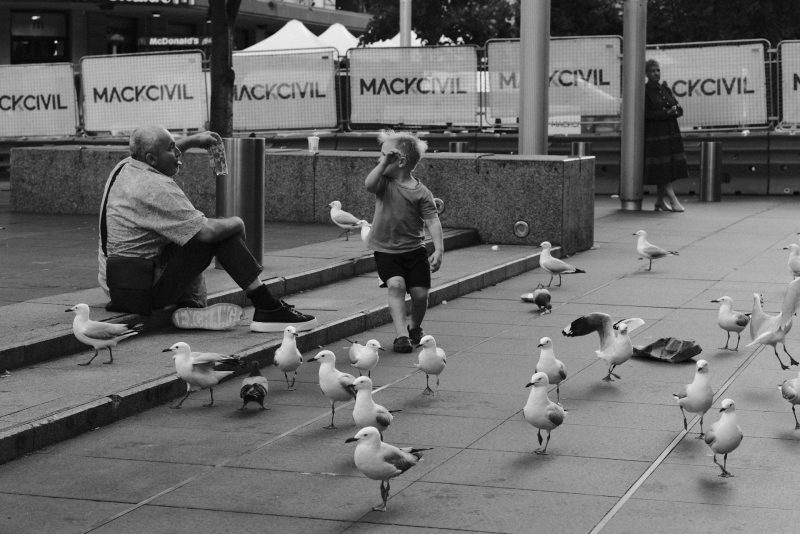Social interaction plays a crucial role in human learning, but it’s often overlooked in traditional narratives about education.
From a very young age, you begin forming memories and gaining knowledge about the world through your social interactions with others. For instance, young children learn about sharing in the playground as they play with others. Social interaction with parents is also significant in supporting children’s learning.
So, are you looking for a practical way to boost your child’s education? Look at socialization. Although encouraging them to study more has its place, healthy socialization often makes a significant difference without adding more pressure.
This article aims to highlight the significance of socialization in education, emphasizing its role in enhancing children’s learning. Thus, if you want to help your kids be more motivated to learn, read more below.
The link between socialization and learning motivation
Socialization and learning motivation are deeply connected in children’s education.
The need for social interactions is inherent in all humans. Thus, learning becomes interesting when your children work together with their friends. These interactions also boost their confidence and foster a sense of belongingness.
How peer interaction enhances learning
Learning is way more fun and effective when kids work together.
Talking with classmates and doing group projects helps them become friends and learn from each other’s experiences. They share different ideas and learn how to work together to reach a common goal. Having support makes them want to learn more.
Children learn more when put in groups. Exposure to diverse perspectives not only enhances learning but also boosts confidence and self-assurance. Together, they generate new ideas, strengthening creativity, critical thinking, and problem-solving ability.
The psychological benefits of social learning
Social interactions offer numerous benefits, which is why socializing is essential for students’ growth.
Your children progress academically and develop emotional skills. They develop a sense of belongingness and empathy and form positive relationships. They also make great strides in communication, cooperation, and conflict resolution.
Read more: Playful Minds: Nurturing Self-Regulation in Kids Through Play
Parenting techniques to encourage socialized learning
So, socialization is important, but what can you do with this information?
Armed with this knowledge, you can design learning plans or environments that benefit your children. You can achieve this by learning effective socialization techniques that parents can apply to their children’s learning environments.
You can guide your children’s social interactions and create opportunities for collaborative learning, both inside and outside the home.
The following sections will discuss parenting socialization techniques that can help boost children’s learning motivation.
Facilitating peer interaction outside the classroom
Children require two types of play for optimal growth. Structured play has clear goals and specific rules, which teach children focus and problem-solving skills. It includes puzzles, board games, etc.
Here are some ways you can facilitate peer interaction with structured play:
- Join clubs. It’s essential to get your child involved in extracurricular activities. Motivate them to join a sports club, an arts class, or a similar activity. It reaps benefits, contributing to their social, mental, and physical development.
- Engage in cooperative games. Use games that require teamwork to succeed, like building something together (e.g., LEGO challenges) or team-based board games.
There’s also free play. Free play, such as drawing and building with blocks, doesn’t have set rules, which enhances children’s creativity and social skills.
Here are some things you can do for free play:
- Arrange playdates. You can arrange playdates with other children living nearby. You might organise them either in your home or outside in the park.
- Encourage interaction. Take your child out to parks or playgrounds regularly. Encourage them to approach children and initiate games with them.
Read more: Helping Your Children Develop Positive Peer Relationships
Encouraging collaborative learning at home
A good learning environment isn’t just limited to your children’s school. You can also build one for them at home.
Here are some tips to help them learn collaboratively at home:
- Create a supportive environment. You can encourage your children to play around in the home. Allow them to ask and learn different perspectives. You can set a family discussion time in the evening to discuss different topics.
- Engage in tasks. Ask your children to assist you in household chores. Assign them tasks to develop responsibility. Invite them to garden, fold clothes, or wash dishes.
- Encourage open communication. Allow your children to discuss and share their concerns with you. Listen to them attentively and appreciate their perspectives.
Fostering a learning-friendly community
A learning-friendly community is a cornerstone of effective socialization in education. It makes your children feel supported and motivated to learn academically and socially.
You can build a community anywhere. Your home is, of course, the starting point. However, you can create a learning-friendly neighborhood and even participate in children’s school activities to achieve this purpose.
Here are some ways to foster a learning-friendly community:
- Attend school events. Make sure to participate regularly in all school events, not just parents’ and teachers’ meetings. Go to open houses, workshops, or seminars to interact with teachers and other parents.
- Visit libraries. Consider getting a membership or visiting libraries frequently with your children. Look out for book fairs or reading clubs to help your child develop a reading habit.
- Connect in co-learning spaces. Look around for co-learning spaces nearby. Encourage your child to participate in group study or forum discussion.
- Connect with a mentor. Help your child find a suitable mentor. Search for an expert who can guide him thoroughly.
Socialization strategies for different age groups
Children’s social development unfolds through distinct stages, each with unique needs and challenges. Strategies effective for a toddler differ significantly from those of a teenager.
Therefore, this section provides age-appropriate guidance for you.
Early childhood and preschool years
Children’s socialization is crucial in early childhood and preschool as it sets the foundation for learning.
Below are a few socialization strategies for children of preschool age:
- Arrange play sessions. You can bring toys or play games that enhance their sensory abilities. Help your child navigate puzzles on their own.
- Encourage group play. Take your child to parks and playgrounds to play with other kids. Appreciate collaborative play.
- Adopt bedtime reading. Remember to read a storybook to your child at night before putting them to sleep. Tell them stories based on social situations.
Elementary school children
Elementary school is the time when children learn to navigate social interactions and relationships.
Some of their effective socialization strategies are discussed below:
- Encourage friendships and playdates. Allow your child to maintain friendships with kids from different backgrounds. Encourage them to invite friends for playdates, group studies, or even experiments. This interaction enhances learning motivation through socialization.
- Participate in community events and sports. Take your child to local festivals, cultural events, and religious gatherings where they can interact with others. This way, they can learn different perspectives by socialising with others. Organize game nights that involve teamwork. Sign your child up for sports clubs that offer learning through physical activity.
- Model positive social behaviors. Teach your child to be a supportive teammate by listening attentively, offering compliments, and including others. This strengthens their social skills in group learning environments.
Adolescents and teenagers
Adolescence is a critical period for socializing with peers, communicating ideas, and forming meaningful relationships.
Here are some useful socializing strategies for adolescents.
- Open dialogue. Encourage open communication. Help your child feel comfortable sharing their thoughts with you. Engage in age-appropriate conversations. Help them think critically to evaluate peer influence and make informed decisions.
- Support leadership roles and lead by example. Encourage your teen to lead projects and different societies. Allow them to teach younger students. Children are mirror copies of their parents, imitating their behavior. Model interactive behaviors so that your child does the same. Share stories of your learning to encourage them.
- Participate in extracurriculars to reinforce autonomy. Encourage involvement in extracurricular activities such as debates, robotics, etc. These activities offer core social interactions essential for learning. Allow your teens to make choices and make decisions. Make them own their decisions. Allow them to set their own goals.
In conclusion
Make learning something your child wants, not something they have to do.
Interaction with others also teaches children to be kind and respectful, which helps them build great relationships later in life.
As a parent, you can make learning enjoyable for your child by shaping the social environments that influence their mindset about learning. The key to your child’s development lies in your hands. Remember that nurturing your child’s social heart is as vital as nourishing their mind – socialization shapes and teaches essential skills.
Thus, embrace these insights and consciously weave socialization into your daily parenting.
If you want to see more resources on learning motivation, check out the Parenting Science Labs. The lab uses the research of the Institute for Life Management Science to produce courses, certifications, podcasts, videos, and other tools. Visit the Parenting Science Labs today.
Photo by Dominic Kurniawan Suryaputra on Unsplash


